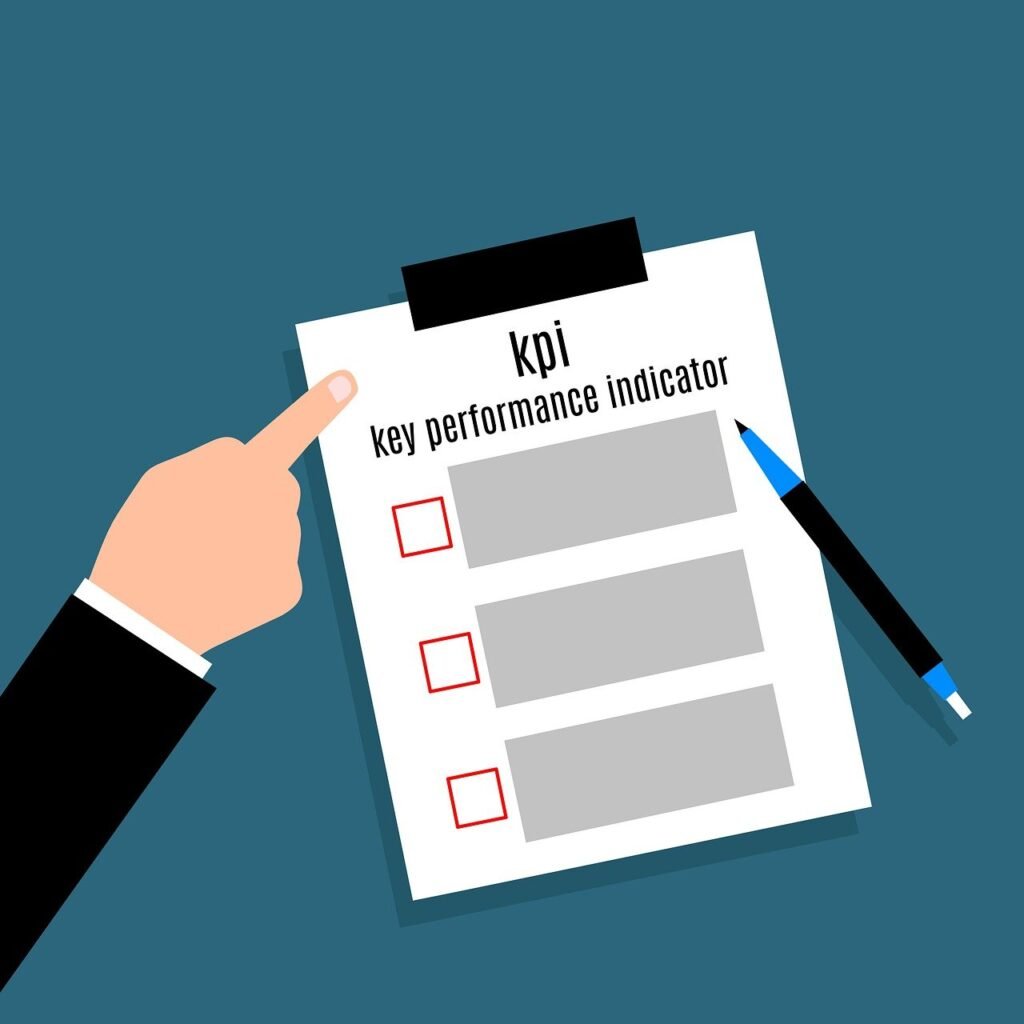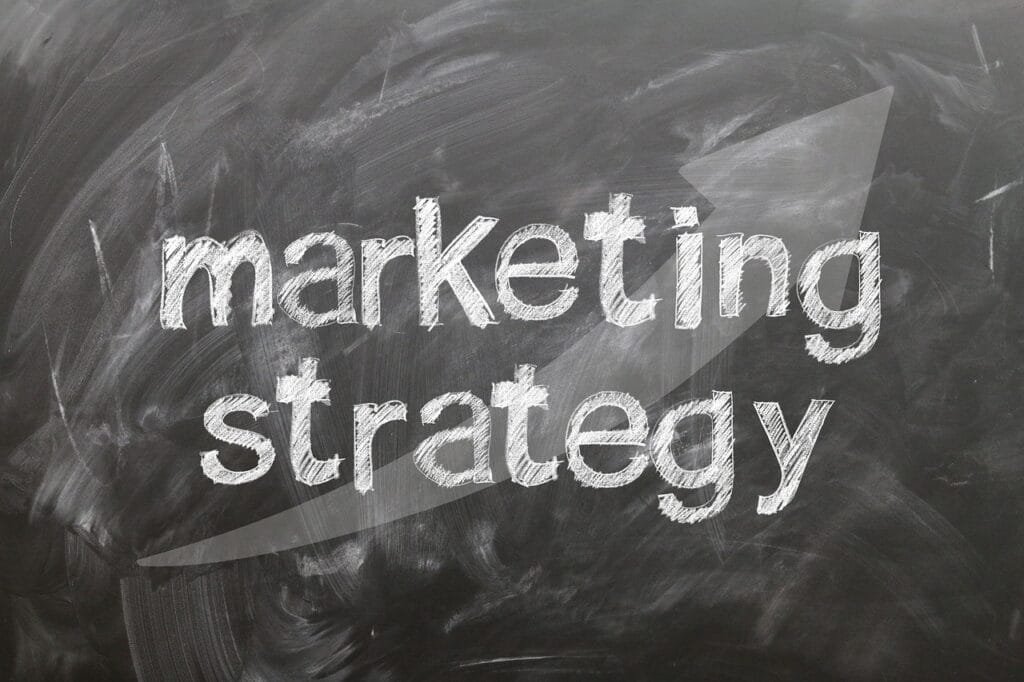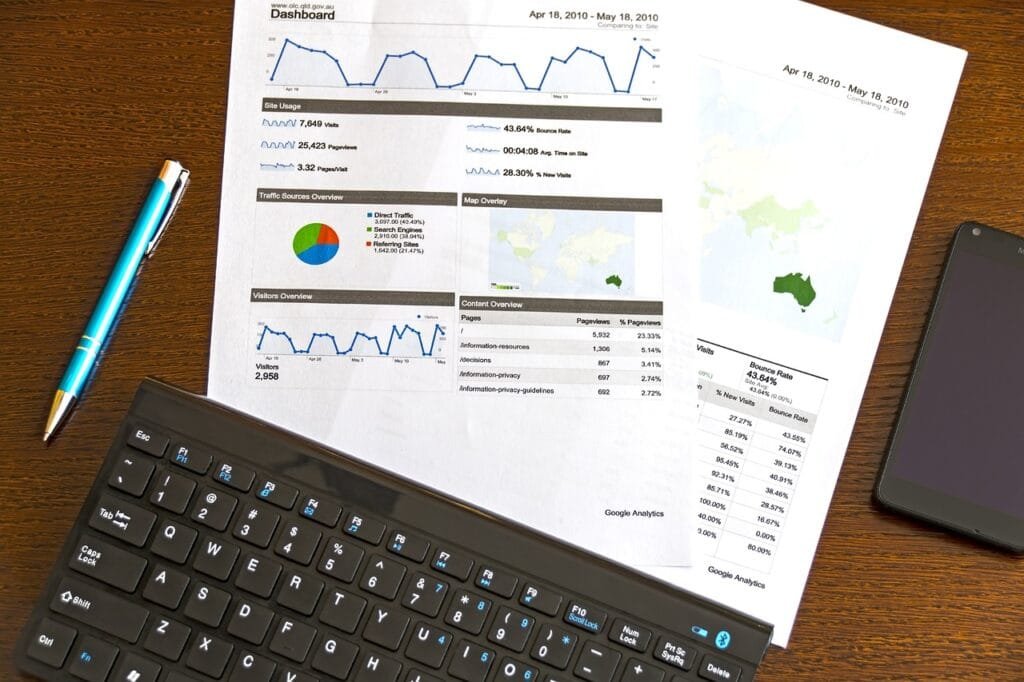This Article has been revised, edited and added to, by Poulomi Chakraborty.
- Blurring Boundaries: The Convergence of Disciplines
- Synergizing Efforts: A Dual Approach
- Building Digital Relationships
- Measurement and Adaptation
- Looking Ahead: Future Trends
- Future-Proofing Integrated Strategies
- Measuring and Enhancing ROI
- Building Integrated Teams
- Future Predictions
- A Step-by-Step Guide to Integrated Strategies
- Future Trends: Beyond the Horizon
- Navigating the Future Landscape
- Overcoming Integration Challenges
- Practical Insights: Implementing Integrated Strategies
- Harmonizing Digital Marketing and PR for the Future
In today’s multifaceted business environment, the silos that once separated distinct departments are dissolving, giving way to a more integrated approach to communication and brand management. Among the disciplines merging are digital marketing and public relations (PR). Traditionally distinct, these fields are finding common ground in the digital space, where content is king, and engagement is the currency of the realm. In this in-depth exploration, we will dissect the nuanced intersection of digital marketing and PR, offering actionable, collaborative strategies that organizations can employ to amplify their brand’s voice, extend reach, and foster engagement.
Blurring Boundaries: The Convergence of Disciplines

The Evolution of Digital Marketing
Digital marketing, characterized by its focus on the online realm, leverages tools and channels such as social media, websites, email, and search engines to connect with target audiences. It is data-driven, performance-oriented, and focused on driving conversions and sales. In this space, metrics such as click-through rates, conversion rates, and ROI are paramount.
The Age of Personalization
The contemporary digital marketing landscape is dominated by personalized content, tailored user experiences, and data-driven strategies. As algorithms become more sophisticated and the volume of online content proliferates, personalization has become the linchpin of effective digital marketing.
The Renaissance of Public Relations
Public Relations, on the other hand, has traditionally been rooted in managing public perception, building relationships, and fostering a positive brand image. PR professionals focus on storytelling, creating narratives that resonate with audiences and shape perceptions.
Digital Narratives
With the rise of digital media, PR is undergoing a transformation. Storytelling is migrating online, where narratives are shaped not just by brands, but also by influencers, bloggers, and even the audience themselves. In this dynamic space, PR is learning to navigate the fluidity of digital narratives.
Synergizing Efforts: A Dual Approach
In the convergence of digital marketing and PR, there lies an opportunity to synergize efforts, creating a collaborative strategy that maximizes the strengths of both disciplines.
Strategy Integration
The Role of Content
Content serves as the bridge between digital marketing and PR. Well-crafted, engaging, and valuable content can drive marketing objectives while shaping public perception. In the integrated strategy, content is designed to be both persuasive and authentic, balancing the promotional aspect of digital marketing with the relational focus of PR.
Content Optimization for Dual Objectives
Balancing Act
In the intertwining world of digital marketing and PR, content must wear multiple hats. It needs to be optimized for search engines, resonating with algorithms to ensure visibility. Simultaneously, it should be engaging and authentic, connecting with audiences on a human level to build relationships and trust.
SEO Meets Storytelling
Herein lies the balancing act – merging SEO with storytelling. Keywords, meta tags, and technical SEO aspects are harmonized with compelling narratives to create content that ranks well and resonates with audiences. The integration is not just technical but artistic, blending the science of SEO with the art of storytelling.
Collaborative Strategies
Integrated Campaigns
The melding of digital marketing and PR gives rise to integrated campaigns that are both data-driven and narrative-focused. These campaigns are characterized by consistency in messaging across various channels, yet tailored to fit the specific medium and audience.
Analytics and Insights
Data analytics play a crucial role. Insights derived from data inform not just the campaign’s design but its evolution. Real-time data allows for dynamic adjustments, ensuring the campaign remains aligned with audience responses and market trends.
Building Digital Relationships

In the digital realm, relationships are forged in clicks, shares, comments, and likes. Both digital marketing and PR professionals are vying for audience engagement, yet their approaches can be distinct.
Engagement Strategies
Social Media Integration
Social media is a battleground and playground for both digital marketing and PR. Marketers use it to drive conversions; PR professionals use it to build relationships. Integrating these objectives, social media becomes a space where brands not only promote but also engage, listen, and respond.
Influencer Collaborations
Influencers bridge the gap between promotion and relationship. Collaborations with influencers can amplify a brand’s message while lending it authenticity and relatability. Here, the influencer’s narrative and the brand’s campaign meld, offering audiences content that is both engaging and persuasive.
Measurement and Adaptation

The digital space is dynamic, and strategies that aren’t adaptable risk obsolescence. Measurement, analysis, and adaptation are integral to the collaborative approach of digital marketing and PR.
Key Performance Indicators (KPIs)
Dual Metrics
KPIs should reflect the dual objectives. While clicks, conversions, and sales remain crucial, metrics like engagement, sentiment analysis, and brand perception also come to the fore. The KPIs become a mix of quantitative and qualitative, reflecting the numerical and narrative aspects of the campaign.

Related: Check out our free SEO suite

Unifying Metrics: A Comprehensive Approach
Quantitative Analysis
Quantitative metrics like web traffic, conversion rates, and click-through rates are staples in digital marketing. These metrics provide a clear, measurable insight into the campaign’s performance, offering a granular view of audience interaction and response.
Real-Time Data Utilization
The use of real-time data is pivotal in making informed decisions. Dynamic adaptation according to the ongoing data trends ensures the campaign’s relevance and effectiveness. It’s not just about collecting data but interpreting and acting upon it swiftly.
Qualitative Insights
In the PR realm, qualitative insights reign supreme. These include brand perception, audience sentiment, and the quality of engagement. Tools like sentiment analysis, social listening, and media monitoring offer insights into the intangible yet crucial aspects of public perception and relationship building.
Narrative Analytics
Narrative analytics delve into the stories that data tells. It’s about connecting the dots between quantitative metrics and qualitative insights, painting a holistic picture of the campaign’s impact.
Looking Ahead: Future Trends

The intersection of digital marketing and PR is not static. It’s evolving, shaped by emerging trends, technologies, and audience expectations.
Emergence of AI and Machine Learning
Personalization at Scale
AI and machine learning are enabling personalization at an unprecedented scale. These technologies are equipping brands to offer tailored content, recommendations, and interactions, aligning with individual audience preferences, behaviors, and journeys.
Ethical Considerations
As AI permeates digital marketing and PR, ethical considerations come to the fore. Transparency, privacy, and consent become pivotal, shaping strategies that are not just effective but ethical.
Navigating the Ethical Landscape
Data Privacy and Security
In an age where data is a valuable asset, protecting user privacy is paramount. For digital marketing and PR campaigns to be effective and ethical, they must respect user consent, collect data responsibly, and prioritize security.
Compliance and Regulations
Adhering to regulations like GDPR and CCPA is not just about legal compliance but about building trust. Brands that respect user privacy and provide transparency in their data practices are poised to build stronger relationships with their audiences.
Leveraging Emerging Technologies Responsibly
AI Ethics
Artificial Intelligence, while offering unprecedented opportunities for personalization and analytics, brings ethical challenges. Issues of bias, transparency, and accountability need to be addressed to harness AI’s power responsibly.
Machine Learning and Fairness
Ensuring that machine learning models are fair and unbiased is crucial. This involves scrutinizing training data, refining algorithms, and continually monitoring outcomes to mitigate bias and ensure fairness.
Future-Proofing Integrated Strategies
As the digital landscape continues to evolve, future-proofing becomes essential. Digital marketing and PR strategies need to be adaptable, resilient, and responsive to emerging trends and technologies.
Adaptive Content Strategies
Content that Evolves
Creating content that can adapt to emerging platforms, technologies, and audience preferences is crucial. This involves a focus on modular content, which can be easily modified, repurposed, and distributed across varied channels and formats.
Real-Time Optimization
Utilizing AI and machine learning for real-time content optimization ensures that content remains relevant and effective, adapting to real-time data, trends, and audience responses.
Building Resilient Brands
Brand Narratives in the Digital Age
In the digital age, brand narratives are co-created with audiences, influencers, and media. Building a resilient brand involves crafting narratives that are consistent yet flexible, anchored in core values yet adaptable to emerging stories and sentiments.
Stakeholder Engagement
Engaging stakeholders in the narrative-building process ensures a multiplicity of voices and perspectives, enriching the brand story and enhancing its resonance with diverse audiences.
Measuring and Enhancing ROI

In the intersection of digital marketing and PR, Return on Investment (ROI) is multifaceted. It’s measured not just in financial returns but in relational equity, brand value, and audience engagement.
Multidimensional Metrics
Financial and Relational ROI
Metrics should capture both the financial and relational aspects of ROI. This involves combining traditional metrics like sales and conversions with emerging metrics like engagement depth, sentiment analysis, and brand advocacy.
Analytics Integration
Integrating varied analytics tools ensures a comprehensive view of ROI. Digital marketing analytics focus on performance, conversions, and sales, while PR analytics capture audience sentiment, brand perception, and relational depth.
Analytical Tools and Techniques
Digital Marketing Analytics
These tools are geared towards measuring performance metrics such as website traffic, bounce rates, conversion rates, and user behavior analytics. Google Analytics, SEMrush, and HubSpot are some of the key players that offer insights into how users are interacting with your online content and converting.
Metrics Deep Dive
Each metric offers a piece of the complex puzzle. For instance, bounce rates can offer insights into the relevance and engagement level of your content, while conversion rates shed light on the effectiveness of your calls to action and overall content strategy.
Public Relations Analytics
PR analytics focus on media impressions, sentiment analysis, and the quality of engagement. Tools like Meltwater and Cision provide insights into how your brand is being perceived, the reach of your PR efforts, and the quality of engagement.
Qualitative Insights
These tools often integrate AI to provide qualitative insights. Sentiment analysis, for example, isn’t just about volume but the tone and context of brand mentions, offering nuanced insights into public perception.
Synthesizing Multifaceted Data
Integrated Dashboards
An integrated dashboard that amalgamates data from varied sources is pivotal. It allows brands to view performance and relational metrics side by side, offering a holistic view of the ROI.
Data Visualization
Effective data visualization tools can aid in making complex data accessible, intuitive, and actionable. Graphs, charts, and heat maps can help in distilling voluminous data into actionable insights.
Actionable Insights for Strategy Optimization
Real-Time Adjustments
The dynamism of the digital space necessitates real-time adjustments. Insights derived from analytics should be acted upon swiftly to optimize content, messaging, and strategies to align with real-time data and trends.
A/B Testing
Employing techniques like A/B testing can offer insights into what works and what doesn’t. This continuous testing and optimization ethos ensure that strategies are not static but evolutionary.
Building a Learning Organization
Continuous Learning
In the rapidly evolving digital space, learning and adaptation become the cornerstones of success. Organizations need to foster a culture of continuous learning, where insights, successes, and failures are shared, analyzed, and learned from.
Knowledge Sharing
Building mechanisms for knowledge sharing ensures that insights are not siloed but are disseminated across the organization, fostering collective learning and adaptation.
Building Integrated Teams
Cross-Training Initiatives
Combining Skills and Expertise
The integration of digital marketing and PR isn’t just about strategies but also about the teams that execute them. Cross-training becomes essential. Digital marketers can benefit from PR’s expertise in relationship building and storytelling, while PR professionals can enhance their strategies with digital marketing’s data analytics and optimization skills.
Training Programs
Customized training programs that offer digital marketers insights into PR, and vice versa, can be instrumental. These programs should focus on skill augmentation, offering practical insights and tools to enhance cross-functional expertise.
Collaborative Culture
Fostering Collaboration
A culture that fosters collaboration is pivotal. It should encourage cross-functional teams to work cohesively, share insights, and co-create strategies. This isn’t just about structural integration but fostering an ethos of collaborative innovation.
Communication Channels
Effective communication channels that facilitate seamless exchange of ideas and insights across teams are crucial. These channels should support real-time communication, ensuring that insights and innovations are shared swiftly and effectively.
Future Predictions
The integration of digital marketing and PR is not a static phenomenon; it’s evolutionary. Emerging trends, technologies, and audience preferences will continue to shape this intersection.
The Age of AI-Powered Storytelling
AI Integration
AI is poised to play a pivotal role. AI-powered tools can offer unprecedented insights into audience preferences, behaviors, and journeys. These insights can inform not just content optimization but also narrative creation, ensuring stories that are data-informed and audience-aligned.
Ethical Storytelling
As AI integrates into storytelling, ethical considerations become paramount. Narratives should be authentic, ethical, and respectful of audience sensibilities, ensuring that the AI-powered personalization augments rather than undermines authenticity.
The Rise of VR and AR in Engagement
Immersive Experiences
Virtual Reality (VR) and Augmented Reality (AR) are set to transform audience engagement. These technologies offer immersive experiences, opening new frontiers for brand storytelling and engagement.
Integrative Narratives
Brands can create integrative narratives that are not just viewed but experienced. This immersive storytelling can enhance audience engagement, offering experiential interactions that deepen relationships and brand affinity.
A Step-by-Step Guide to Integrated Strategies

In the evolving digital landscape, integrating digital marketing and PR isn’t an option but a necessity. Here is a step-by-step guide to foster a seamless integration, ensuring that your brand remains relevant, resonant, and responsive in the dynamic digital era.
Step 1: Assessing the Current Landscape
Internal Audit
Begin with an internal audit to understand the current state of your digital marketing and PR strategies. Evaluate the strengths, weaknesses, opportunities, and threats in both domains.
Data Inventory
Collect and analyze data to understand performance metrics, audience engagement, and ROI. This foundational assessment is pivotal to identify gaps, opportunities, and areas for integration.
Step 2: Building Cross-Functional Teams
Talent Integration
Create cross-functional teams that bring together professionals from digital marketing and PR. Foster a collaborative culture where insights, skills, and expertise are shared and integrated.
Skill Augmentation
Invest in training programs to augment skills. Equip digital marketers with PR skills and vice versa, ensuring a workforce that is versatile, integrated, and adept in the combined discipline.
Step 3: Crafting Integrated Strategies
Content as the Bridge
Leverage content as the bridge between digital marketing and PR. Create content strategies that are both SEO-optimized and narrative-driven, ensuring visibility and engagement.
Channel Optimization
Optimize channels to deliver content effectively. Evaluate the nuances of each digital channel and tailor content to fit its specific dynamics and audience preferences.
Step 4: Data Analytics and Insights
Unified Data Analytics
Implement unified data analytics to capture, analyze, and interpret data from both digital marketing and PR perspectives. Focus on a holistic view of data that combines performance metrics with qualitative insights.
Actionable Intelligence
Translate data insights into actionable intelligence. Adapt strategies in real-time to align with data trends, audience preferences, and market dynamics.
Step 5: Ethical and Regulatory Compliance
Privacy and Consent
Navigate the ethical and regulatory landscape adeptly. Ensure data privacy, secure consent, and comply with regulations to build trust and credibility.
Ethical Storytelling
Balance personalization with ethical storytelling. Ensure that narratives, while data-informed, remain authentic, ethical, and respectful of audience diversity and sensibilities.
Future Trends: Beyond the Horizon
AI’s Evolutionary Role
Predictive Analytics
As AI evolves, predictive analytics will play a pivotal role. Brands will be equipped to predict trends, audience behaviors, and market dynamics, ensuring proactive rather than reactive strategies.
AI Ethics Evolution
The evolution of AI will be accompanied by the evolution of AI ethics. Regulatory frameworks, ethical guidelines, and industry standards will emerge to navigate the ethical challenges posed by AI’s integration into storytelling and engagement.
The Blockchain Revolution
Transparency and Trust
Blockchain is set to transform digital marketing and PR by enhancing transparency and trust. It offers immutable, transparent records, ensuring credibility in data handling, content attribution, and audience engagement.
Tokenized Engagement
Blockchain will also foster tokenized engagement, where audience interactions are tokenized, fostering a new ecosystem of value exchange, rewards, and brand loyalty.
Navigating the Future Landscape
In the dynamic digital era, adaptability becomes the cornerstone of success. Brands need to be agile, innovative, and responsive to navigate the evolving intersection of digital marketing and PR.
Continuous Innovation
Innovation Culture
Foster a culture of continuous innovation where new ideas, technologies, and strategies are explored, evaluated, and integrated to keep pace with the digital evolution.
Feedback Mechanisms
Implement feedback mechanisms to capture audience insights, market trends, and competitive intelligence. Ensure that feedback is not just collected but translated into strategic adaptations.
Innovative Technologies in Focus
AI and Machine Learning Enhanced Strategies
Real-Time Personalization
AI and machine learning algorithms have been at the forefront of offering real-time personalization strategies. They analyze vast datasets to offer insights on user behavior, preferences, and trends, allowing marketers and PR professionals to tailor content and messages precisely.
Automated Content Creation
AI is stepping into content creation, automating aspects of copywriting, and content optimization. This not only streamlines content production but ensures that it is highly targeted and SEO optimized.
Augmented Reality (AR) Engagements
Immersive Brand Experiences
AR technology is making waves by offering immersive brand experiences. It turns ordinary content into interactive experiences, offering brands unprecedented opportunities to engage audiences.
AR in PR
From a PR perspective, AR offers a medium to convey brand stories in an engaging, interactive format. It transforms passive content consumption into active audience participation, deepening engagement and emotional connection.
Blockchain’s Emerging Role
Enhancing Credibility
Blockchain technology is yet to reach its zenith in digital marketing and PR. Its potential to enhance transparency and credibility is massive. For instance, blockchain can verify the authenticity of digital ads, curbing ad fraud and ensuring that marketing budgets yield genuine reach and engagement.
Secure Data Handling
In PR, blockchain can authenticate sources and content, bolstering credibility. It can also ensure secure, transparent data handling, a crucial aspect in an era where data privacy and security are paramount.
Overcoming Integration Challenges
Bridging the Skill Gap
Cross-Functional Training
One of the significant challenges is the skill gap. Digital marketing and PR professionals often have specialized skill sets. Bridging this requires cross-functional training programs, workshops, and learning modules to cultivate a workforce adept in both domains.
Collaboration Platforms
Implementing platforms that foster collaboration, idea exchange, and integrated strategy formulation is pivotal. These platforms should support real-time communication and collaboration, breaking down silos and fostering a unified approach.
Data Integration
Unified Data Analytics
Data silos can impede integrated strategies. Adopting unified data analytics platforms that amalgamate, analyze, and offer insights from varied data sources is crucial. These platforms should offer a holistic view, combining quantitative and qualitative data insights.
Privacy Compliance
Ensuring that data integration complies with privacy regulations is essential. Strategies should ensure data privacy, security, and ethical handling to build trust and credibility.
Practical Insights: Implementing Integrated Strategies
Brand B’s Adaptive Approach
Dynamic Strategy Formulation
Brand B, another hypothetical entity, showcases an adaptive approach to integrating digital marketing and PR. Their strategies are characterized by dynamic formulation, where real-time data insights, market trends, and audience feedback continually shape the campaigns.
AI-Driven Insights
AI plays a pivotal role, offering real-time insights that inform content strategies, audience targeting, and engagement tactics. It ensures that strategies are not static but evolutionary, adapting to the ever-changing digital landscape.
Evaluating the Outcomes
Multifaceted ROI Measurement
Brand B’s approach underscores the importance of multifaceted ROI measurement. It’s not just about clicks and conversions but audience engagement depth, brand perception, and relational equity.
Continuous Optimization
The brand adopts a continuous optimization ethos, where every campaign, content piece, and audience interaction is an opportunity to learn, adapt, and optimize.
Harmonizing Digital Marketing and PR for the Future

A Symphony of Strategies
The integration of digital marketing and PR is akin to a symphony, where distinct notes and rhythms come together to create a harmonious and impactful melody. In this dynamic digital era, neither can exist in silos. Their convergence is not just beneficial but essential for brands aspiring to carve a distinctive niche, engage audiences meaningfully, and navigate the multifaceted digital landscape adeptly.
Key Takeaways
Adaptive Integration
The future belongs to brands that can adapt, integrate, and innovate. It’s about merging data with narratives, performance metrics with engagement insights, and real-time personalization with ethical storytelling. The brands that can navigate this intricate dance will not just survive but thrive in the evolving digital ecosystem.
Ethical and Innovative Evolution
As technology evolves, ethical considerations and innovative adaptability become pivotal. The integration of AI, AR, VR, and blockchain will redefine engagement, storytelling, and trust. Brands need to be at the forefront of this evolution, embracing innovations while navigating ethical, privacy, and security considerations.
Continuous Learning and Optimization
In the intertwined world of digital marketing and PR, continuous learning, and optimization is the cornerstone. Every piece of data, audience interaction, and market trend offers insights. Brands that can translate these insights into adaptive strategies, dynamic content, and engaged storytelling will lead the future narrative.
Final Thoughts
The intersection of digital marketing and PR is an evolving narrative, characterized by dynamic trends, emerging technologies, and shifting audience expectations. In this landscape, integration, innovation, and ethical considerations will guide the path. Brands are not just storytellers but engaged listeners, not just data analysts but insightful interpreters, weaving the intricate threads of data and narratives into a tapestry that is engaging, ethical, and evolutionary.
As we step into this future, the brands that can harmonize the science of digital marketing with the art of public relations will craft narratives that resonate, engage, and stand the test of the evolving digital epoch. The journey is not just about visibility but credibility, not just reach but depth, carving pathways of engagement that are as meaningful as they are measurable, as authentic as they are ambitious.
The convergence of digital marketing and public relations is not a trend but a transformation—a transformation that redefines engagement, storytelling, and brand building in the digital age.
Read Next:
- Best Accounting Software for Small Businesses: A Comprehensive Review
- How Game-Changing is the Digital Rupee going to be?
- Agile CRM Review: How Good is It (in 2023)?
- Recent Trends in Mergers and Acquisitions in the US (2023)
- Agile CRM Review: How Good is It (in 2023)?






















Comments are closed.